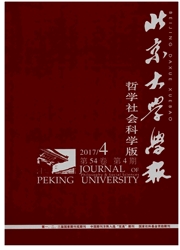

 中文摘要:
中文摘要:
本文从Lakoff&Johnson描述的隐喻出发,认为隐喻不仅仅是理解及组织概念的方式,它更重要的意义在于能创造出新的语言形式。隐喻分规则隐喻与非规则隐喻,规则隐喻产生"非原型效应"现象而非规则隐喻产生"原型效应"现象。认知科学对语言中的"原型效应"现象似乎并没有做出应有的解释。如果语言中"原型效应"的形成无法得到解释,那么就意味着在语法研究中区分"原型效应"现象与"非原型效应"现象是必要的,也即区分规则语言片段与非规则语言片段是必要的。认知语法(构式语法)正是因为没有区分规则语言片段与非规则语段最终在语法体系的建立上出现了问题。
 英文摘要:
英文摘要:
Based on Lakoff Johnson's metaphor,this paper argues that metaphor is merely a means of decoding and encoding concepts,but also a means of new linguistic forms.Metaphor can be divided into conventional and non- conventional metaphor,the former yielding "non- prototype effects"while the latter "prototype effects". It seems that cognitive science does not offer appropriate explanations for "prototype effects". If the formation of"prototype effects"in language cannot be explained,it means that it is necessary to distinguish "prototype effects"from "non- prototype effects"in grammar study; in other words,it is necessary to distinguish conventional utterance from non-conventional utterance. It is due to a lack of distinction between conventional and nonconventional utterances that problems occur in the construction of grammar system cognitive grammar( Construction Grammar).
 同期刊论文项目
同期刊论文项目
 同项目期刊论文
同项目期刊论文
 期刊信息
期刊信息
